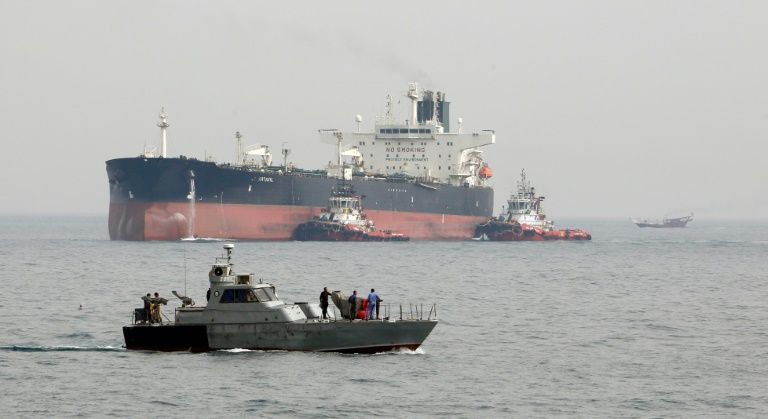A tanker of the National Iranian Oil Company
Iran has extended the idea that its economy can be propped up by oil sales by private companies, amid US sanctions hoping to choke Tehran’s energy sector.
Oil Minister Bijan Zanganeh proclaimed on Wednesday that the private markets, purchasing almost one million barrels of oil on the stock market in late October and early November, “have been able to export and there have been no problems”. He said 3 million barrels of crude could be sold soon to non-government traders.
But the amount is a tiny fraction of Iran’s exports, even at their current restricted level of 1.1 million bpd.
The Trump Administration imposed the comprehensive sanctions on November 5, following its withdrawal from the 2015 nuclear agreement between Iran and the 5+1 Powers (US, UK, France, Germany, China, and Russia). In anticipation of the measure, purchasers began cutting their imports with Iranian sales halving since April.
Tehran’s situation could be worse if not for US sanctions waivers until March to eight of Iran’s largest customers, provided they cut back their purchases.
The Iranian State has had a monopoly on oil production and exports since nationalization of the Anglo-Iranian Oil Company in 1951.
Oil and the Budget
President Hassan Rouhani’s chief economic advisor Mohammad Baqer Nobakht said Tuesday night that the Government budget for 2019-2020 assumes $21 billion of oil revenues, compared to this year’s $28 billion.
Presenting the budget to Parliament earlier in the day, Rouhani said 1,425 trillion rials — 33% of the 4,700 trillion rial plan — will come from oil exports.
The propsed budget is $112 billion at the exchange rate set by the Government, but only $55 billion at the open-market rate of about 110,000 rials v. the US dollar.
Officials have indicated a budget assumption of $54 per barrel and sales of 1 million to 1.5 million bpd.

